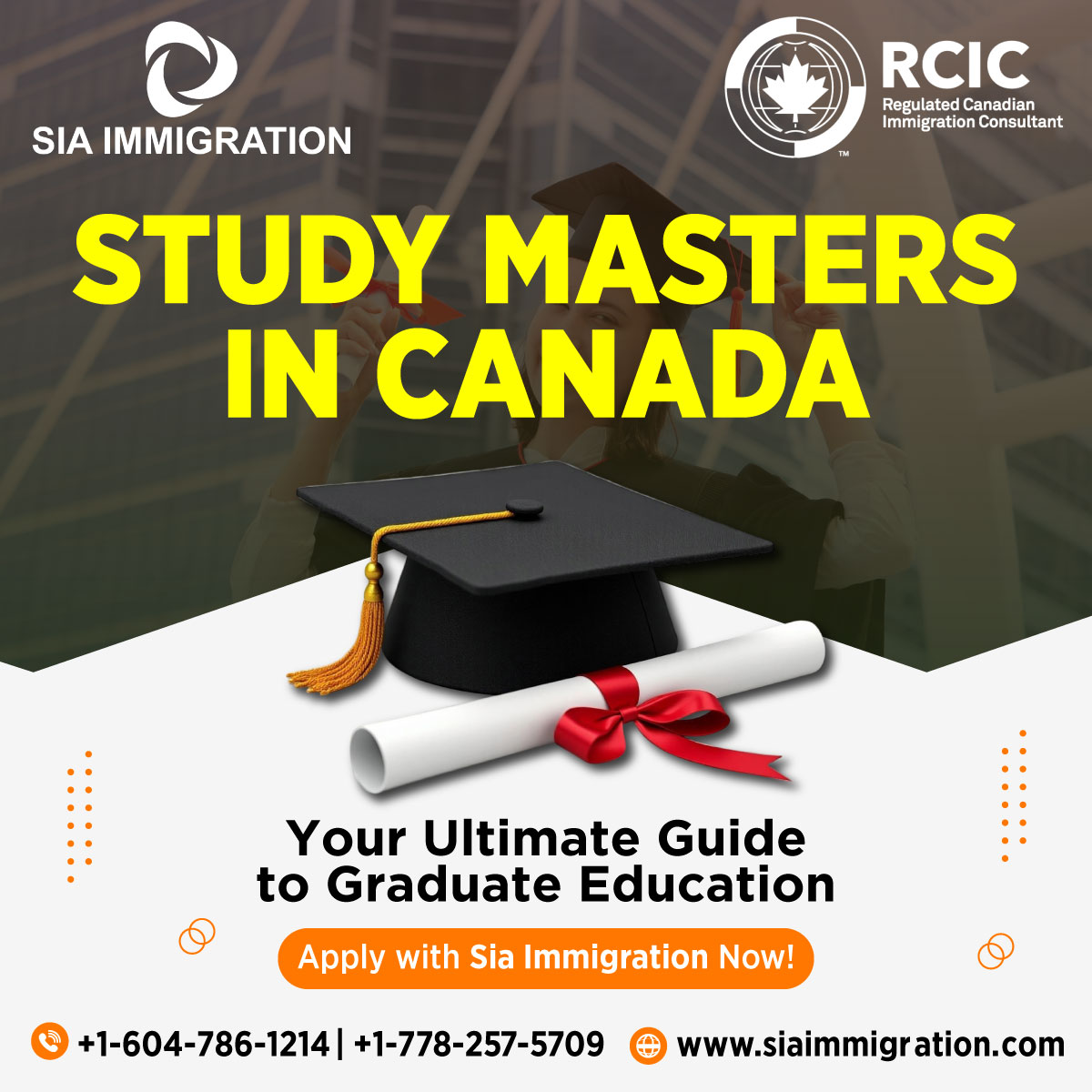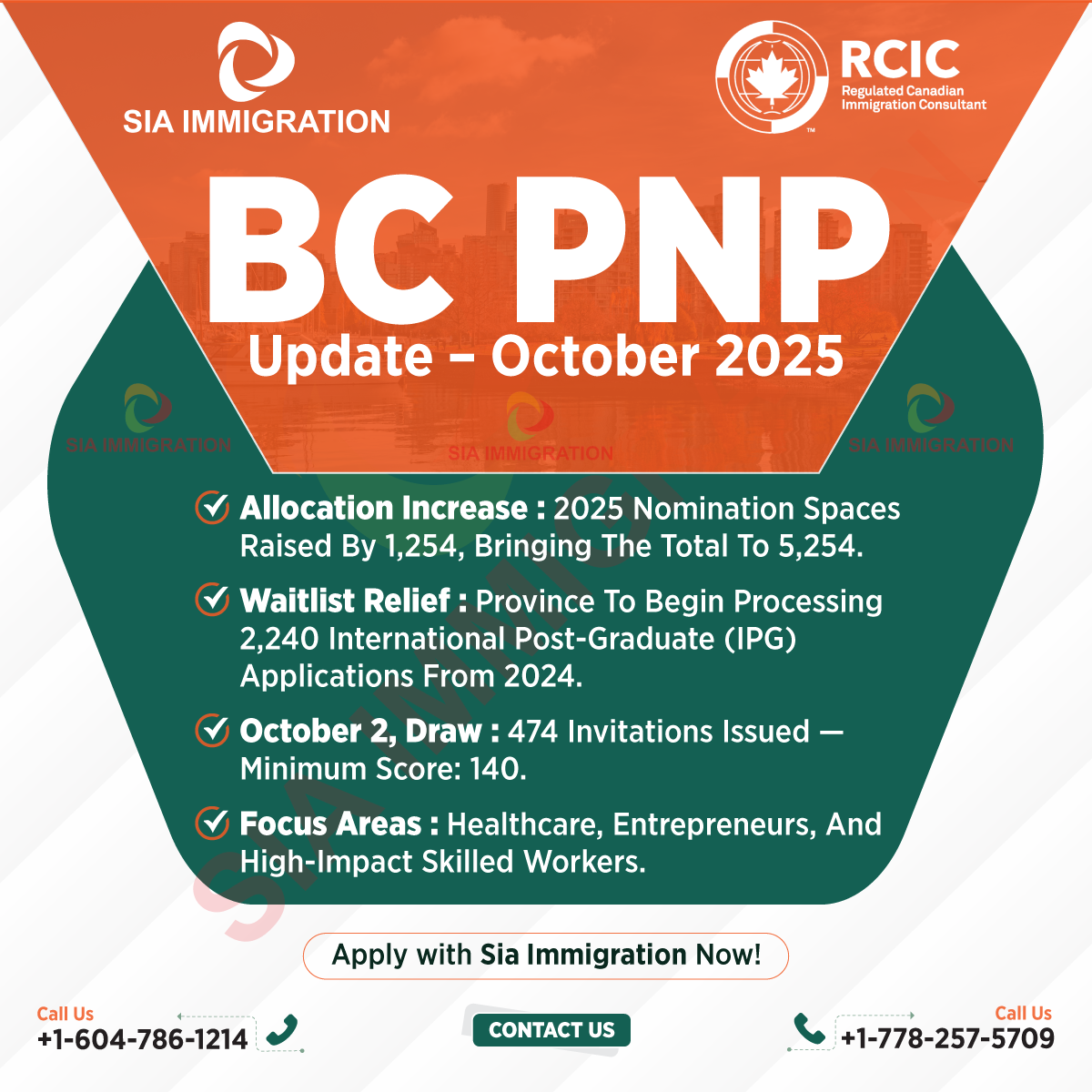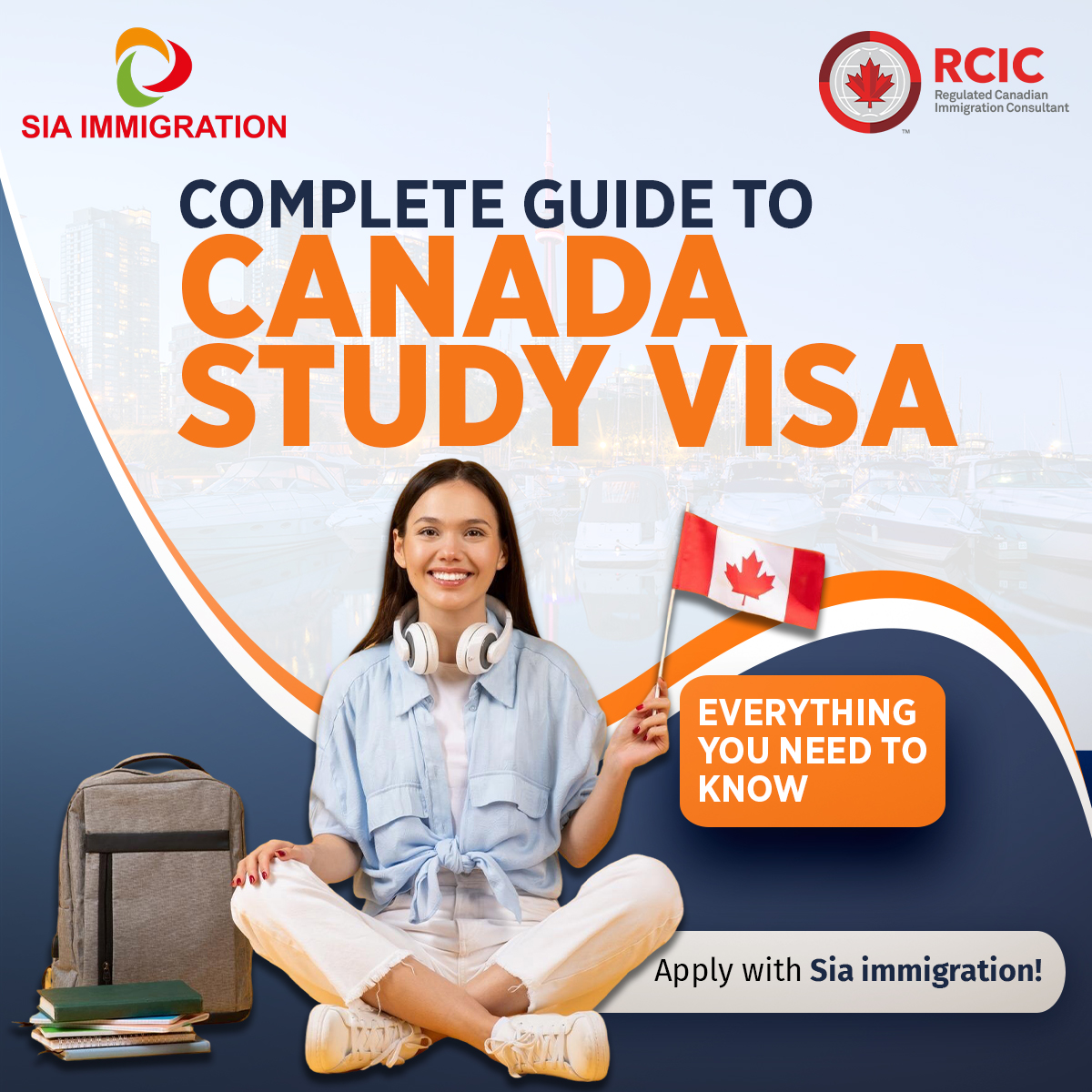- +1 (604) 786-1214 , +1 778-257-5709
- mkj@siaimmigration.com
Study Masters in Canada Your Ultimate Guide to Graduate Education

Study Masters in Canada, Your Ultimate Guide to Graduate Education
Canada has established itself as a global leader in graduate education, attracting thousands of international students each year to pursue master’s degrees. With world-class universities, research opportunities, and clear pathways to permanent residency, studying for a master’s degree in Canada represents an investment in your future that extends far beyond academics.
Why Choose Canada for Your Master’s Degree?
World-Class Education System
The top-ranked universities, as per the World QS Rankings 2025, are the University of Toronto (#25), McGill University (#29), and the University of British Columbia (#38). Canadian universities consistently rank among the world’s best, offering cutting-edge research facilities and internationally recognized programs.
Quality and Recognition
Canadian master’s degrees are globally recognized and respected by employers worldwide. The education system emphasizes practical application, research excellence, and critical thinking skills that prepare graduates for leadership roles in their chosen fields.
Multicultural Environment
Canada’s diverse society provides an enriching environment for international students, fostering global perspectives and cross-cultural understanding that are invaluable in today’s interconnected world.
Popular Master’s Programs and Specializations
Engineering and Technology
Engineering and Management are among highly valued and best PR-friendly courses in Canada. Programs include:
- Computer Science and AI: Machine learning, data science, cybersecurity
- Civil Engineering: Infrastructure development, sustainable construction
- Electrical Engineering: Renewable energy, telecommunications
- Mechanical Engineering: Automotive, aerospace, manufacturing
Business and Management
- MBA Programs: Full-time, part-time, and executive options
- Finance and Economics: Investment management, economic analysis
- Marketing: Digital marketing, brand management, consumer behavior
- Supply Chain Management: Logistics, operations optimization
Healthcare and Life Sciences
- Public Health: Epidemiology, health policy, global health
- Biomedical Sciences: Research-focused programs with industry connections
- Nursing: Advanced practice, healthcare administration
- Pharmaceutical Sciences: Drug development, regulatory affairs
Environmental and Sustainability Studies
- Environmental Engineering: Pollution control, sustainable technologies
- Climate Change Studies: Policy development, mitigation strategies
- Renewable Energy: Solar, wind, and emerging technologies
- Environmental Management: Corporate sustainability, policy analysis
New Requirements for 2025
Provincial Attestation Letter (PAL)
New to 2025, graduate-level students and most onshore students require a PAL/TAL. This represents a significant change in the application process.
Exemptions from PAL Requirements
- Government of Canada priority groups
- Vulnerable cohorts
- Francophone students under Francophone Minority Communities Student program
- Students in specific programs
Study Permit Cap Implications
While primarily affecting undergraduate programs, the study permit cap may influence graduate program availability and competition levels.
Admission Requirements
Academic Prerequisites
- Bachelor’s Degree: Completed four-year undergraduate degree or equivalent
- GPA Requirements: Minimum 3.0 GPA (B average), with competitive programs requiring 3.5+
- Academic Transcripts: Official transcripts from all institutions
- Letters of Recommendation: 2–3 academic or professional references
Language Proficiency
- IELTS: Minimum 6.5 overall (6.0 in each band)
- TOEFL iBT: Minimum 90–100 depending on program
- Duolingo English Test: Increasingly accepted
- French Proficiency: Required for French-language programs
Standardized Tests
- GRE: General or subject-specific tests
- GMAT: For MBA and business programs
- LSAT: For law-related programs
- MCAT: For medical and health science programs
Application Process and Timeline
Application Timeline
- 18 Months Before: Begin researching programs and universities
- 12–15 Months Before: Take standardized tests
- 10–12 Months Before: Request transcripts, prepare materials
- 6–12 Months Before: Submit applications
- 3–6 Months Before: Admission decisions
- 2–4 Months Before: Apply for study permit, prepare for departure
Application Components
- Online Application: University-specific forms
- Statement of Purpose: Goals and motivations
- Academic Documents: Transcripts, certificates, test scores
- References: Academic and professional recommendation letters
- Portfolio: For creative/design programs
- Application Fees: CAD 100–200 per application
Financial Planning
Tuition Fees
- Canadian Students: CAD 6,000–15,000/year
- International Students: CAD 20,000–60,000/year
- Professional Programs: CAD 30,000–80,000/year
- Research Programs: Lower fees, more funding opportunities
Living Expenses
- Major Cities (Toronto, Vancouver): CAD 15,000–25,000/year
- Medium Cities (Calgary, Ottawa): CAD 12,000–18,000/year
- Smaller Cities: CAD 10,000–15,000/year
Funding Opportunities
- Research Assistantships: CAD 15,000–25,000/year
- Teaching Assistantships: CAD 10,000–20,000/year
- Scholarships: CAD 5,000–50,000
- Government Funding: NSERC, SSHRC, CIHR
- External Scholarships: Fulbright, Commonwealth, etc.
Work Opportunities During Studies
On-Campus Employment
- Research Assistant, Teaching Assistant, Admin Roles
- Unlimited Hours allowed
Off-Campus Employment
- 24 Hours/Week during academic sessions
- Full-Time during scheduled breaks
- Work Permit Required (included in study permit)
Co-operative Education
- Paid Work Terms integrated into program
- Industry Connections for employability
- Programs may extend by 4–12 months
Post-Graduation Opportunities
Post-Graduation Work Permit (PGWP)
- Valid up to 3 years
- Open Work Permit (any employer, any location)
- Pathway to Permanent Residency
- No job offer required
Permanent Residency Pathways
Express Entry System
- Education Points for Canadian master’s degree
- Language Bonus for French proficiency
- Canadian Work Experience through PGWP
- Provincial Nomination advantages
Provincial Nominee Programs (PNPs)
- Ontario Masters Graduate Stream
- Quebec Experience Program
- BC Provincial Nominee Program (tech & healthcare)
- Alberta Advantage Program (engineering & healthcare)
Career Prospects and Outcomes
Employment Rates
- 85–95% employed within 6 months
- 20–40% higher salaries than bachelor’s graduates
- Faster career growth and leadership roles
High-Demand Fields
- Technology: Software, data, cybersecurity
- Healthcare: Clinical, admin, research
- Finance: Banking, risk, fintech
- Engineering: Infrastructure, energy, manufacturing
- Education: Research, teaching, admin
University Selection Strategy
Research Universities (U15 Group)
- University of Toronto, McGill, UBC, Alberta, McMaster
Comprehensive Universities
- Simon Fraser, Waterloo, Carleton, Victoria
Specialized Institutions
- OCAD, Emily Carr, Royal Roads
Application Tips for Success
Academic Excellence
- High GPA, internships, strong references, continuous learning
Application Strategy
- Apply to multiple programs, tailor SOPs, highlight uniqueness, meet deadlines
Professional Development
- Gain work experience, leadership skills, technical knowledge, networking
Challenges and Solutions
Common Challenges
- High competition, financial burden, cultural adjustment, language barriers
Success Strategies
- Early preparation, explore funding, cultural awareness, language training
Future Outlook and Opportunities
Growing Sectors
- AI, Clean Technology, Healthcare Innovation, FinTech
Immigration Trends
- Express Entry improvements
- Provincial priorities favor master’s graduates
- Francophone advantage
- Rural opportunities for PR pathways












